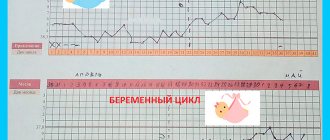Exhaustion, fatigue, drowsiness, lethargy - whatever you call it, it's a burden. So what causes fatigue during pregnancy, and what can you do about it?
You find it difficult to lift your head from the pillow, your legs feel heavy all day, and you dream of finding yourself in bed as soon as you come home in the evening. Is this a familiar state? No need to worry! It's normal to feel tired during pregnancy, especially in the first months and weeks before giving birth.
What you can do about fatigue during pregnancy
Fatigue during any period of gestation is a reasonable signal from your body that it is necessary to reduce physical or psychological stress. This can be easily dealt with if you rationally organize your work day and rest. You may be able to improve your condition by using some of the following tips.
- Pamper yourself. If you are an expectant mother, then enjoy your last chance to take care of yourself without feeling guilty about your child. Soon your life will change, and you will devote all your personal time only to him. And if you already have children, you will have to divide your attention among everyone, not forgetting about your other half. In any case, now is not the time to strive for super-mom status. So, if you are tired, rest as much as possible, focus on yourself, take up your favorite hobby. Put aside running around shops and markets, cooking, and cleaning for a while. If financially possible, hire someone to do these activities. Or at least order groceries and essential goods online. Don’t make too long a plan for the day; there are some things that can be put off for a very long time. Never been to a SPA salon or salt cave? Now is the best time to visit them.
- Don't be shy to ask for help. You will be doing a lot of hard work in the coming months. Therefore, share with your partner how exhausted you are, so that he will share household chores with you, and subsequently take them completely upon himself. If you have trusted friends or relatives, they may also offer you help. Don't deny them this pleasure! For example, they can shop for groceries, make utility payments, and take their older child (if they have one) to kindergarten. By distributing your usual activities in this way, you will feel a surge of energy, which will be enough even for a short walk in the fresh air before bed.
- Get enough sleep. If you constantly feel sleepy, it's obviously worth extending your morning nap by an hour or two. Just don't overdo it: sleeping too long can have the opposite effect and make you feel even more tired.
- Get more rest. Exhausted at the end of the day? Spend your evening rest in a calm environment, in a semi-sitting position with your legs raised. Don't wait until it gets dark to calm down. If you have trouble sleeping, try lying down and resting (or taking a short nap) during the day. When working in an office and not being able to lie down, at least periodically place your feet on a raised platform. If you have a strict schedule, use your lunch break to visit the break room (if you have one).
- Find a common language with your children. If you already have them, you need to try to explain to them that mom can get tired too. After all, the reason for your fatigue is obvious to you, even when you got used to it and stopped noticing it. Either way, it's not easy to make yourself a priority when your children demand extra attention. Tell them that carrying a baby is hard work and you need to rest and get enough sleep. Ask them to help around the house and give you time to rest. You can “kill two birds with one stone” by leafing through or reading a book, solving puzzles, watching cartoons, playing doctor, where you are a sleeping sick patient. But it is best when the child is accustomed to daytime quiet time. Then you can safely go to bed with him, and this will be enough to relieve fatigue.
- Eat right. To maintain your energy, you need a constant supply of fuel. Follow pregnancy diet recommendations, focusing on healthy, long-lasting nutrients such as protein and complex carbohydrates. Also make sure you are getting enough calories. Perhaps the cause of the malaise lies in a low-calorie diet. A well-balanced, healthy diet is the key to a successful pregnancy. It is worth reducing some foods that are sources of quick but not long-lasting energy. Caffeine or sugar (or both) may seem like an ideal, affordable solution to weakness. But don't be fooled: your blood glucose levels will quickly drop, and your hunger and lack of energy will return.
- Eat small and often. Like many other symptoms of pregnancy, fatigue can be relieved by eating regularly. Ideally, this is six meals a day with three main and three snacks. This ensures that your sugar levels are maintained at a constant level, which means stable energy. Therefore, skipping even one meal is not recommended. Include foods rich in protein, complex carbohydrates, fiber, vitamins and minerals in your frequent small meals.
- Move. Of course, bed has never been more inviting, but, paradoxically, the right amount of exercise can be more invigorating than taking a nap. Therefore, include leisurely walks in the fresh air, exercises for pregnant women, yoga, and breathing exercises in your daily schedule. Thanks to them, the endocrine organs begin to secrete hormones that improve mood - endorphins. These biologically active substances can give you vigor and improve night sleep. Plus, exercise is good for both you and your baby. Just don't overdo it - you need to finish the workout energized, not excited.
How to deal with weakness?
If general weakness in the early stages of pregnancy is not a pathological condition, then you can fight it yourself. Firstly, you need to understand that this is a normal sign and it will not be possible to completely eradicate it, you just need to learn to live in a new way.
The first months of pregnancy are especially difficult for women who continue to work and do not have the opportunity to reduce their schedule. Still, to ensure that the pregnancy period is not painful, you must follow several rules:
- In case of any incomprehensible sensations or worsening of the condition, it is better to consult a doctor;
- Provide yourself with a complete, balanced diet; during this period, you should forget about quick snacks, dieting and malnutrition;
- Ensure adequate sleep and rest, in addition to night sleep, it is also necessary to take short breaks during the day;
- Do not work in conditions that are life-threatening (chemical, toxic emissions, etc.);
- Spend a lot of time in the fresh air, walking if possible;
- Doing exercises for pregnant women will help keep muscles and blood vessels toned;
- Avoid stress and other nervous situations.
Under no circumstances should you panic; weakness is very common in pregnant women. But if you deal with it correctly, it will not greatly aggravate the early period of pregnancy.
Take note: healthy snacks
During pregnancy, you often crave something tasty, which is usually harmful. Therefore, when you want to get a bag of chips or salted crackers, remember the right snacks. While sitting at home, you can prepare a vegetable or fruit salad, smoothie, milk-curdshake with berries, or, as a last resort, make a sandwich with black bread and healthy spread. But on the road, at work, in line at the local obstetrician-gynecologist, you will have to be content with the snacks you have stored.
An apple, banana, kiwi, a handful of nuts, crispbread, a piece of hard cheese, a boiled egg or a bottle of drinking natural yogurt (kefir, fermented baked milk) are suitable as a travel snack. Snacks should not be later than 4 hours after the main meal. But it is not recommended to consume fruit or liquid immediately after eating. The former begin to ferment in the stomach due to prolonged passage of protein foods, while the latter simply dilute gastric juice and inhibit digestion.
Pregnancy beginning
A woman's body begins preparing for the next nine months of gestation immediately after conception. There are certain, albeit minimal, changes that occur in the first weeks of pregnancy. Their detection can confirm suspicions about imminent motherhood or become a reason for purchasing a test, visiting a doctor and more accurate diagnosis. Naturally, pregnancy is most often suspected if, during previously regular menstruation, a delay of several days suddenly occurs. But sometimes there are minor bleedings that can be mistaken for menstruation, which is why pregnancy is often determined with an error in timing. Due to the gradual change in the concentration of hormones that help maintain pregnancy, changes in the mother's body occur that are more and more obvious.
What Causes Fatigue During Pregnancy
Pregnancy is like climbing a mountain or a marathon without prior training with a backpack that weighs more and more every day. In other words, it's hard work! During the first trimester, a huge amount of energy is spent on creating the baby's life support system, namely the formation of the placenta. Moreover, your body's metabolism speeds up significantly, and your blood sugar levels and blood pressure tend to drop. And also mood swings, which also lead to increased fatigue.
By the end of the first trimester, your body will have completed the Herculean task of forming the placenta, and your body will have adjusted to the hormonal and emotional changes that are occurring. This means that the second trimester will be a time of energy restoration.
In the third trimester, the fatigue that bothers you in the early stages of pregnancy may return with a vengeance. And no wonder! There are many good reasons for the resumption of a weakened state. You're carrying extra weight that wasn't there before, and it's constantly growing. The load on the spine and legs increases, causing back pain and restless leg syndrome. Changing the position of internal organs, namely the stomach, leads to heartburn. This whole complex can make sleep restless and of poor quality.
In addition, pregnancy dominance (a mind overloaded with thoughts about the baby) can also cost you sleep and energy. You are running around with shopping lists, necessary things to do, choosing a name for your child... And you think about it even in your sleep. Add to this the usual family responsibilities, work, caring for other children, and the risk of fatigue increases exponentially.
However, if severe and persistent fatigue is not consistent with the workload, continues throughout pregnancy and worries you, consult your doctor. Especially if it is accompanied by additional symptoms such as weakness, severe shortness of breath or even fainting. This may be the manifestation of iron deficiency anemia, a common but treatable condition during gestation.
If you feel sad or lethargic, feel panicked or anxious, or have a change in appetite, prenatal depression should be ruled out, another condition your doctor can help treat.
Weakness in late pregnancy, third trimester
Any of the reasons described above can manifest itself in the form of weakness in the third trimester, and even toxicosis.
But it’s not early, but late, called gestosis by obstetricians. Unlike early toxicosis, gestosis often has to be treated. If, along with weakness, swelling is observed, blood pressure rises, and the analysis shows the presence of protein in the urine, then you should definitely consult a doctor to prescribe appropriate therapy. We are talking about the development of severe gestosis - preeclampsia. However, much more often weakness in the third trimester of pregnancy embodies fatigue from carrying a baby, and weakness in the legs also appears. Closer to the expected date of birth, a woman already wants to give birth as soon as possible: the expectant mother is both psychologically and physically ready to become a real mother. By the way, preparing the body for childbirth is also very exhausting and tiring...
Another specific cause of weakness in late pregnancy may be compression of the inferior vena cava, which runs under the uterus.
Under a heavy load, it is compressed, which leads to poor circulation. Mom may experience weakness, dizziness, and throbbing in the lower abdomen. Most often, this happens when lying on your back, and therefore doctors advise avoiding this position during sleep and rest in late pregnancy. The knee-elbow position helps reduce pressure from the inferior vena cava, as well as generally relieve stress on the musculoskeletal system.
How to relieve fatigue: recommendations
The emotional state of a woman directly affects the state of the child and has a huge impact.
Under stress, cells are able to accumulate a negative effect and this negatively affects the woman in labor and the baby. Therefore, one of the keys to a stable and healthy pregnancy is a happy and calm mother.
Walking in the fresh air should definitely be in the routine of a pregnant woman. This has a positive effect on the general condition, blood flow, and saturates the body with oxygen. You can do light exercise or gymnastics in nature, or do yoga, if allowed. Plus, forests, water, even city parks and greenery calm the nervous system and act as an anti-stress.
Diet is another major factor influencing the course of pregnancy, the child and the expectant mother. If there is a deficiency of vitamins and nutrients, there are risks:
- miscarriage;
- premature birth;
- retardation in child development;
- the birth of a baby with pathologies and reduced immunity;
- great stress for the mother's body;
- difficult birth.
To avoid negative consequences, you need to follow the recommendations:
- take vitamin complexes for pregnant women (as prescribed by a doctor);
- eat vegetables, fruits, meat and cheese daily;
- drink clean water, if there are no restrictions from the doctor;
- eat regularly throughout the day;
- include foods containing iron and fiber in your diet;
- exclude fatty, fried and spicy foods;
- reduce the amount of spices and salt.
Treatment of weakness in a pregnant woman
Weakness during pregnancy is a completely normal condition, if not caused by concomitant diseases. In order not to worsen the situation, a woman should stop worrying and regularly take tests appropriate for pregnancy. General recommendations will help overcome fatigue and drowsiness:
- Allow enough time for quality sleep, the duration of which should be at least 8 hours. Day rest is not included in this norm
- Meals should not consist of large dishes. It is better to sit down at the table 6 times, but with a small portion, which the body will need to spend less energy to absorb.
- A contrast shower helps relieve fatigue. Pregnant women are not recommended to get carried away by strong changes in water temperature
- Frequent walks will also help in the fight against weakness. It is better to avoid busy roads with large accumulations of exhaust gases. It’s good if you have water and ammonia with you.
- Frequent ventilation of the bedroom is necessary. The room temperature during rest should not exceed 21ºC.
A balanced diet for a pregnant woman should not be left without attention. The doctor leading the pregnancy will tell you which product to give more or less preference to.
Weakness, a feeling of fatigue, drowsiness are accompanying symptoms of a special condition of a pregnant woman. Worrying about this will only make things worse.









